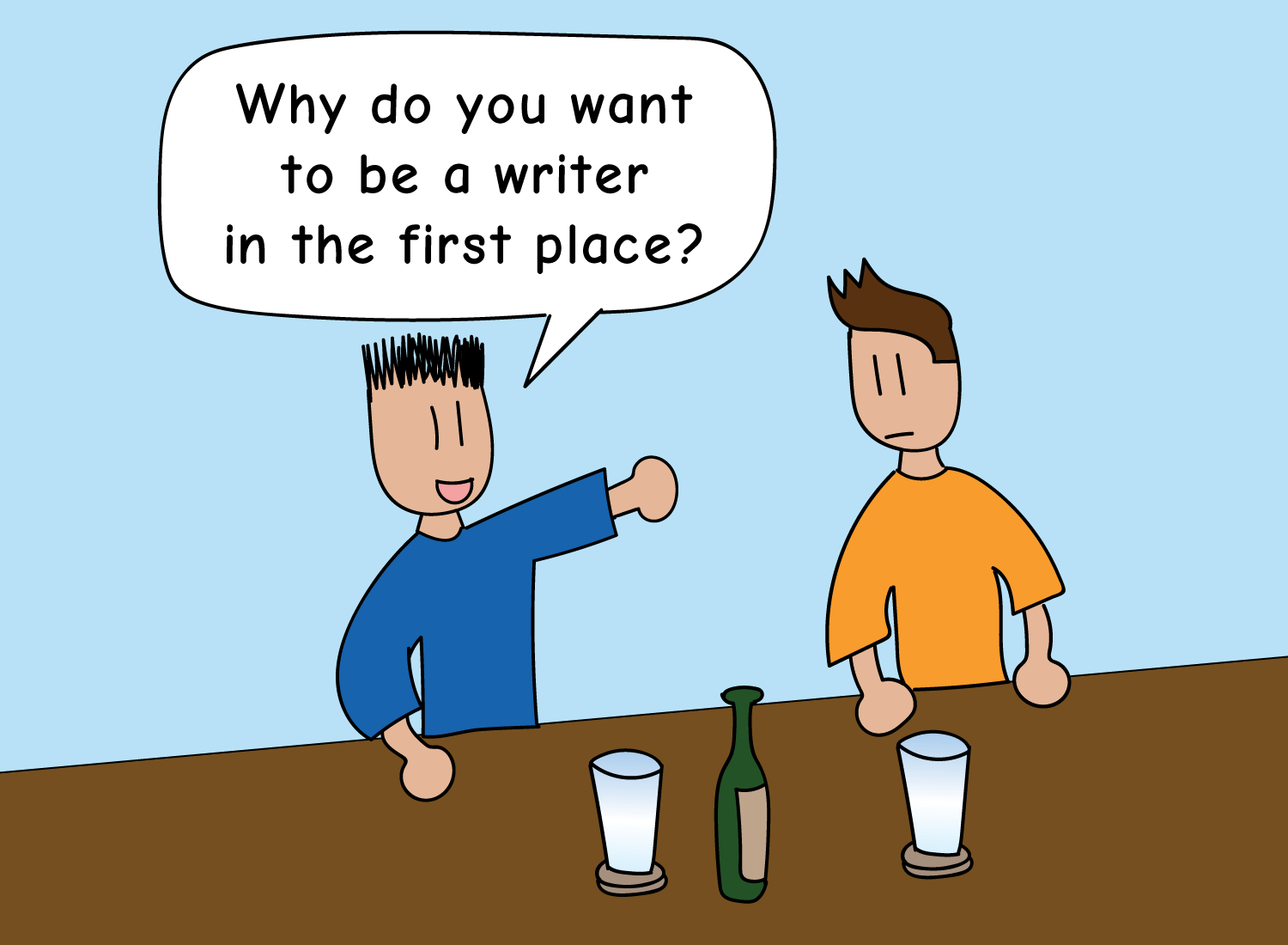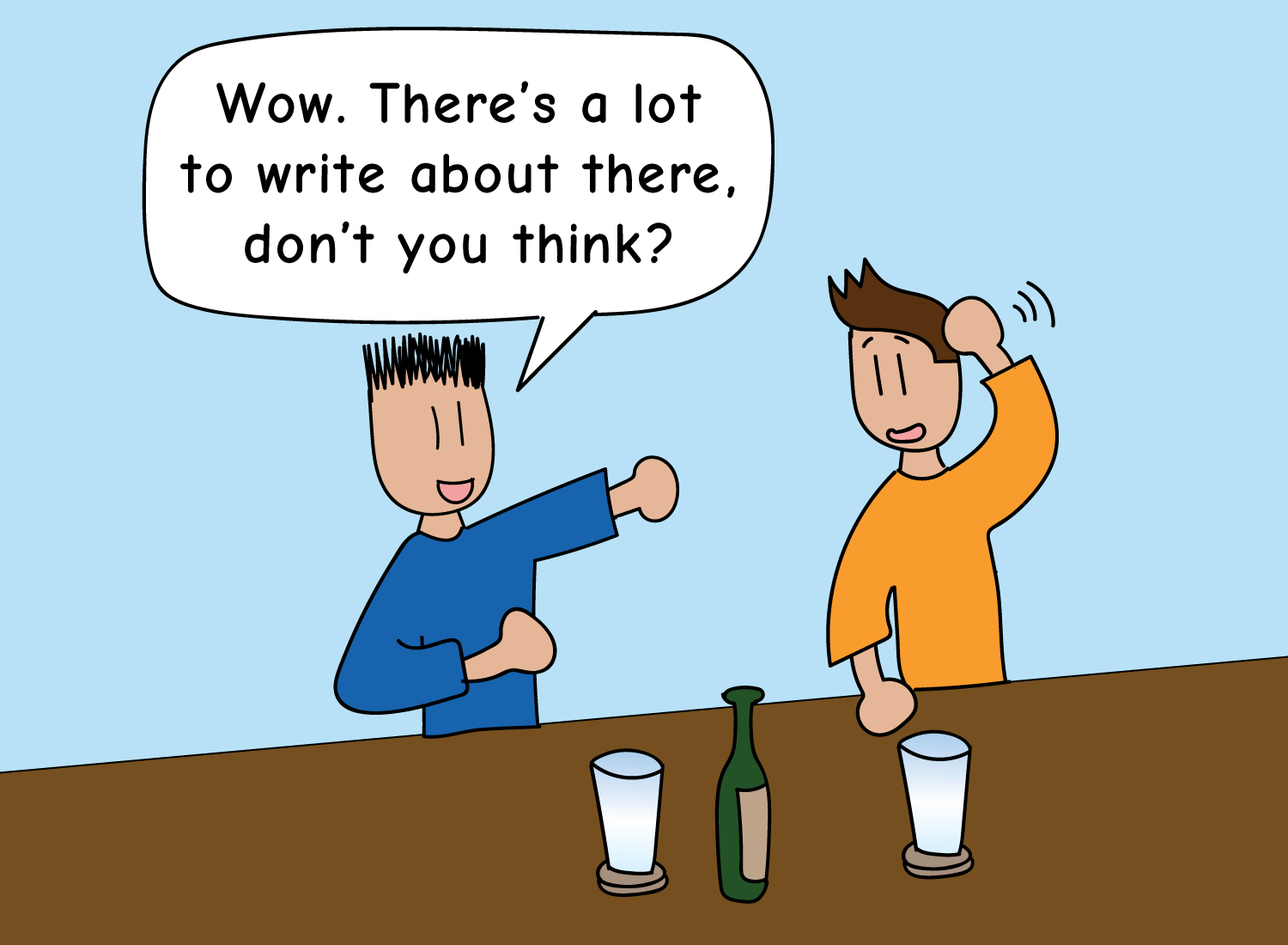Write to Give Yourself Advice
One common issue I hear from writers is that they have nothing to write about. Or more specifically, they know there’s something to write about, but they just don’t know where to look.
I have a two-step process I like to use when helping people with this problem. The first step is to ask them the following question:
After a brief pause, the person will usually follow up with an illuminating answer. They’ll tell me about the things they’re influenced by, the books they love reading, and the experiences they’ve had in their lives. They’ll discuss how they want to distill these things into the written word, and share it with those that may be interested. After all, writing is a great way to package the complexities of the human condition into something digestible.
Upon listening to their response, I’ll then do something that makes this exercise practical. I’ll take one of the issues they’re curious about, and then frame it as if it were my own personal problem. Then I’ll ask them to give me advice about it to help me think through it better.
For example, let’s say that John wants to be a writer because he wants to share his thoughts on making better financial decisions. He reads a lot about decision-making frameworks, and thinks that he can contribute something unique to this field.
At this point, I’ll pretend as if I were someone that needed help in this realm. I’ll say something like, “So John, I’m struggling on whether I should enjoy my money now or save it for an uncertain future. For instance, should I save up to buy a house in a market that keeps getting wilder? Or should I go on this big vacation that my parents always dreamed of? What do you think I should do?”
Given that this problem lives in the realm of John’s interests, he will reliably have something to say. In fact, he’ll probably have quite a lot to say, and may even ask me questions to further elaborate on this imagined scenario. He’ll want me to clarify how old my parents are, what it means to go on that vacation with them, how comfortable am I with a mortgage, etc. Then he’ll take those responses and filter them through his problem-solving lens to outline a clear path forward for me.
As his answer draws to a close, I’ll then tell him:
What I find fascinating about advice is that it’s quite natural to give it when someone asks you for it. If someone earnestly asks for your opinion about something you know about (or are figuring out), you’ll do your best to articulate your thoughts about it. You’ll experiment with ideas and try to connect the dots in a way that feels both fun and helpful.
Using this lens, think of writing this way:
Writing is the act of giving yourself advice about the problems you care about most.
The key is to embody both sides of the conversation at once: be the person that asks for advice, and also be the person that gives it. While the part about giving advice isn’t that difficult (we have opinions about everything), that part about asking for it may be tricky. It’s one thing to have me as a role-playing partner, but it’s another to do this entirely on your own.
But all we need here is a framing shift.
Regularly put yourself in the position of someone that might ask you for advice. When I first asked that question of why John wanted to be a writer, that’s me figuring out what kind of problems he might be interested in solving. Once I pinpointed that, then I could think of a scenario that he’d be happy to give his take on.
Similarly, by repeatedly asking yourself why you write, you’ll be able to present yourself with better problems to write about. One way to unearth some of these problems is to journal regularly. What I find awesome about journaling is that it removes any expectations of external validation, so it’s an honest way of delving deep into the things you care about most. It’s the closest thing you’ll get to a raw, unfiltered exploration of self without chemically altering the state of your mind.
When it comes to finding ideas to write about, it has less to do with an external search and more of an internal one. You can spend the next week reading a lot of books, and still feel like you have nothing to write about. But if you spend the next week asking yourself why you write and listing the tangential problems that emerge from that line of questioning, then there will be so much for you to address.
When people tell you to “write for yourself,” it’s commonly done under the guise of “just write what you’re curious about.” While that’s true, it only represents half of the equation. The other half is to understand that writing is a conversational process, where you put yourself in the position of someone that would love to get your thoughts on an interesting problem. It’s a form of empathy that allows you to give yourself the best advice, which you can then use as a continuous reminder of what you’re capable of thinking.
You already know what it’s like to help someone think through a problem that you’ve thought deeply about. It’s interesting, immersive, and challenging.
Just like great writing.
_______________
_______________
For three more stories and reflections on the craft of writing:
The Economics of Writing (And Why Now Is the Best Time to Do It)




